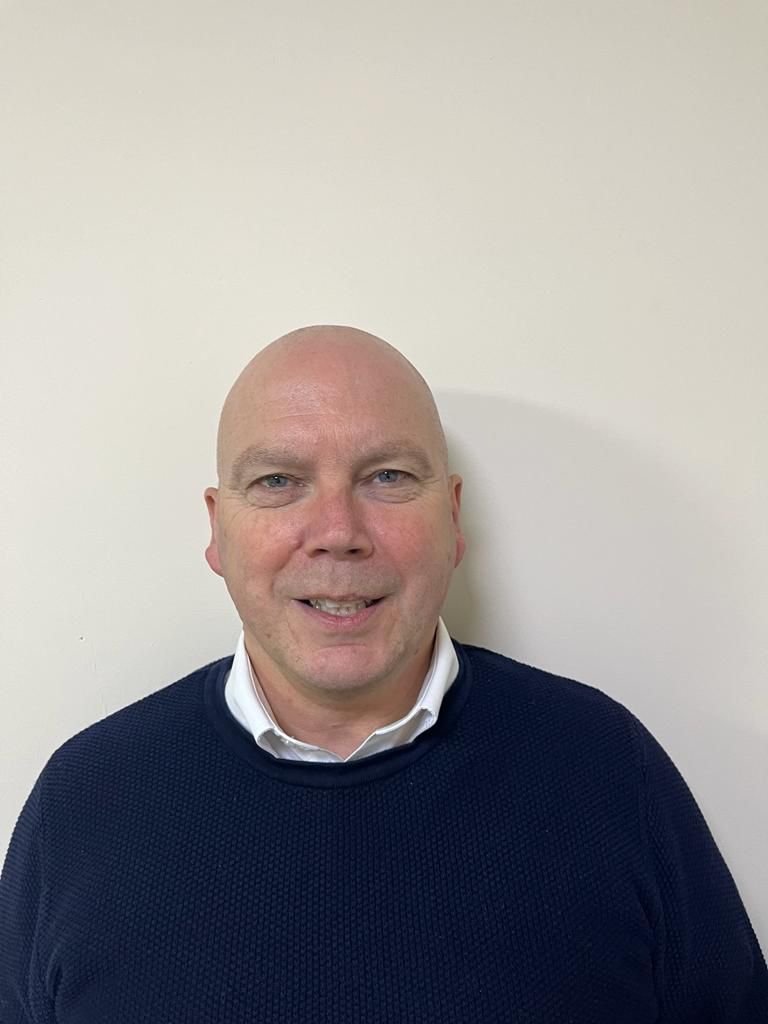Strategic HR: Education & Innovation with Derek Bruce
Written by: Mark Stewart
Mark Stewart is the in-house Certified Public Accountant, an accomplished author and financial media specialist.
Updated on March 26, 2024

Meet Derek Bruce, the HR & operations director at First Aid at Work Course, a multi-award-winning provider of accredited in-house first aid training and a proud member of the Federation of First Aid Training Organizations (FOFATO).
With over 25 years of experience in HR and operational management, Derek has masterfully led over 110 engineers and front-line managers, inspiring and developing them to meet challenging business targets. His expertise extends to managing change influenced by cultural and environmental factors through strategic implementation processes.
In this interview, Derek shares his insights into the indispensable role of education in HR, strategic HR management, the importance of soft skills, and the future of HR in the context of technological advancements and changing workforce dynamics.

Role of Education in HR
HR – With your extensive experience in HR and operations, how do you perceive the impact of higher education, such as a Master’s or PhD, on the evolution of HR practices and policies in an organization?
Derek – Higher education dramatically influences human resources. Indeed, a Master’s or Ph.D. expands one’s perspective — encompassing psychology, business management, and law — and this advanced knowledge proves crucial for developing HR practices and policies that resonate with the intricacies of the modern workforce.
Higher education fosters critical thinking and research skills: these fuel innovation in HR strategy, equipping the team to tackle complex issues through evidence-based solutions. As workplace environments evolve rapidly, such degrees arm HR professionals with essential tools — those that enable forecasting and adapting to emerging trends. This adaptability contributes significantly to organizational resilience and sustainability.
Certifications and Career Advancement
HR – In your view, how do specific HR certifications like SHRM, PHR, and SPHR contribute to career progression within the HR field? Can you share an example from your career where such a certification played a pivotal role?
Derek – HR certifications — such as SHRM, PHR, CIPD, and SPHR — have underpinned my career advancement and hands-on implementation in the field. These accolades signify a professional’s dedication and proficiency in human resources. They boost one’s credibility and sway within an enterprise. For example, following my acquisition of the CIPD certification, I led a sweeping initiative that escalated employee retention by 25%.
The turning point highlighted the importance of continuous learning and professional development. These certifications provide practitioners with updated best practices, setting a higher benchmark for HR competencies — indispensable tools in managing the fluid landscape of human resources.
Strategic HR Management
HR – How do you integrate strategic HR management practices into your role at First Aid at Work Course, and what challenges have you faced in aligning these practices with the company’s overall goals?
Derek – Strategic HR management forms the crux of my responsibilities. I work to synchronize our HR practices with the company’s grand objectives. This involves incorporating strategic management into each procedure, which is a task that is both delicate and essential. A major hurdle I faced was overhauling conventional training models for digital platforms. This necessitated an astute reassessment of our talent development strategy while ensuring that we preserve the rigorous standards and efficacy inherent in our courses. We met this challenge head-on: leveraging HR analytics, we mapped employee capabilities and pinpointed gaps in digital skills. Our response — a series of targeted development programs — strategically positions our workforce to maintain agility and cements our status as a leading first aid training provider.
Soft Skills in HR
HR – Can you elaborate on the importance of soft skills, such as communication and interpersonal abilities, in HR management and how these skills have influenced your approach to managing diverse teams and conflicts?
Derek – My handling of diverse teams and resolution of conflicts, rooted in strong communication and interpersonal skills, is the cornerstone of adept HR management. These attributes foster trust-building and collaboration within our teams. In HR management, you must actively listen, articulate clearly, and negotiate effectively to resolve issues harmoniously, thereby maintaining a positive workplace atmosphere.
I practice empathy and emotional intelligence, skills that have enabled me to navigate myriad workplace scenarios, such as mediating employee disputes and driving change management initiatives that impact the entire organization.
Leadership and Decision-Making
HR – As an HR and operations director, what strategies do you employ to make tough decisions, like layoffs or budget cuts, and how do you balance the needs of the company with those of the employees?
Derek – When tackling difficult choices such as layoffs or budget reductions, it’s crucial to balance the imperative of company survival with employee well-being. My approach employs comprehensive analysis, transparent communication, and, when feasible, an exploration of alternative options that mitigate workforce fallout.
For example, rather than resorting to layoffs, we may explore natural attrition or a temporary decrease in work hours. These measures, paired with upskilling initiatives, prepare employees for more diverse roles. Our approach demands both delicate negotiation and decisive action. It ensures the company’s long-term sustainability while acknowledging and respecting the contributions and needs of our employees.
Innovation in HR
HR – In what ways have you incorporated innovative HR practices at First Aid at Work Course to enhance employee engagement and satisfaction?
Derek – I spearheaded the integration of several innovative HR practices at First Aid at Work Course to boost employee engagement and satisfaction: flexible working arrangements, recognition programs that celebrate individual and team achievements, and a robust wellness initiative. Prioritizing employee engagement has led to marked improvements in job satisfaction, heightened productivity, and fortified company culture — all celebrating our collective mission: saving lives through first-aid education.
Remote Work and HR Challenges
HR – With the increasing trend of remote work, what unique HR challenges have you faced, and how have you adapted your HR strategies to accommodate this shift?
Derek – We have proactively addressed the distinct HR challenges (maintaining team cohesion and preserving company culture) that emerged with the trend towards remote work across a dispersed workforce. Our response includes crafting clear, fair, and supportive remote working policies.
Furthermore, by instituting regular virtual team-building activities along with open forums for employee feedback, we’ve managed to replicate the camaraderie and communication flow typical of an in-office environment, which is crucial for cohesive teams. To adapt effectively, we centralized robust tech support and resourced home offices. Our goal is to sustain high-standard work from any location.
Diversity and Inclusion
HR – How do you ensure diversity and inclusion within your teams, and what specific initiatives have you implemented at First Aid at Work Course to promote an inclusive workplace culture?
Derek – First Aid at Work Course prioritizes the active pursuit of a diverse and inclusive workplace. Initiatives — including bias training, diverse hiring panels, and employee resource groups — have cultivated an environment rich in inclusion and representation. Moreover, mentoring programs empower underrepresented groups, thus promoting a culture steeped in diversity throughout the organization. Our commitment to ensuring inclusive first-aid training that meets our diverse clientele’s needs is what drives all these efforts.
HR in Crisis Management
HR – Given your experience in HR and operations, how do you handle HR-related crises, especially in high-pressure situations like those that might occur in a first aid training environment?
Derek – In responding to HR-related crises, particularly within the high-pressure environment of first aid training, I take immediate action: establishing clear communication channels ensures that each team member is well-informed and prepared. This might involve convening emergency meetings, facilitating joint problem-solving sessions, or providing additional support for affected personnel. To effectively lead the team through challenges, it is crucial to maintain a calm and organized front.
Future of HR
HR – Lastly, where do you see the future of HR heading in the next decade, particularly in relation to technological advancements and changing workforce dynamics?
Derek – HR’s future, as I see it, will undergo a transformation fueled by technological progress and evolving workforce dynamics. The escalating utilization of AI in talent acquisition and analytics, an intensifying demand for remote work infrastructure, and a heightened focus on employee well-being predictably contour the forthcoming decade.
HR professionals must remain proficient at leveraging technology to amplify their functions while concurrently preserving that essential human touch within their engagements. HR practitioners must continuously learn to stay effective. They need to keep abreast of legal, behavioral, and technological developments.
